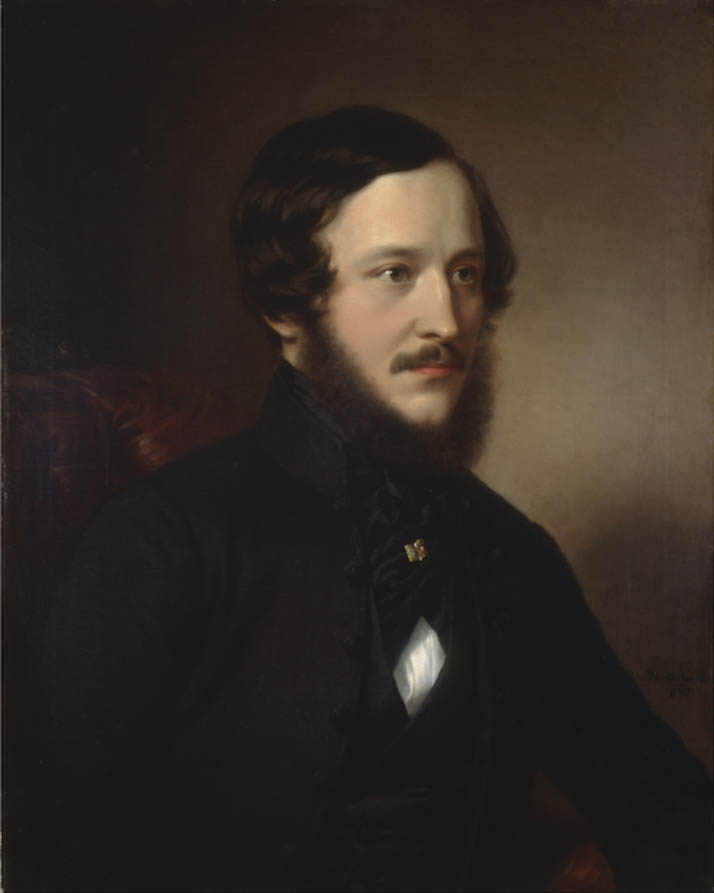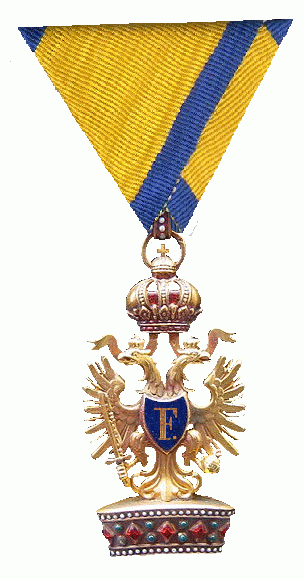|
Gyula Wlassics
Baron Gyula Wlassics de Zalánkemén (17 March 1852 – 30 March 1937) was a Hungarian politician, who served as Minister of Religion and Education between 1895 and 1903. Description In December 1895 Wlassics passed a law that allowed women, among whom Sarolta Steinberger, to attend Eötvös Loránd University in Budapest to study medicine.Women can also study at Hungarian universities , 19 December 2011, Hirek.sk, Retrieved 21 April 2017 Wlassics favoured the free religious practice. He initiated the establishing of the museums' and the libraries' uniform organization with a national level. King Franz Joseph I
[...More Info...] [...Related Items...] OR: [Wikipedia] [Google] [Baidu] |
Minister Of Education Of Hungary
The Minister of Human Capacities of Hungary ( hu, Magyarország emberierőforrás-minisztere) is a member of the Government of Hungary, Hungarian cabinet and the head of the Ministry of Human Capacities. The current minister of human capacities is Miklós Kásler. This page is a list of Ministers of Education of Hungary. Minister of Education (1848) Kingdom of Hungary (1526–1867), Hungarian Kingdom (1848) Parties Ministers of Religion and Public Education (1848–1919) Kingdom of Hungary (1526–1867), Hungarian Kingdom (1848–1849) Parties Hungarian State (1849), Hungarian State (1849) Parties ''After the collapse of the Hungarian Revolution of 1848, the Hungarian Kingdom became an integral part of the Austrian Empire until 1867, when dual Austria-Hungary, Austro-Hungarian Monarchy was created''. Kingdom of Hungary (1867–1918), Hungarian Kingdom (1867–1918) Parties Hungarian Democratic Republic, Hungarian People's Republic (1918–1919) Parties Minis ... [...More Info...] [...Related Items...] OR: [Wikipedia] [Google] [Baidu] |
Iron Crown Of Austria
The Imperial Order of the Iron Crown (german: Kaiserlicher Orden der Eisernen Krone; it, Ordine imperiale della Corona ferrea) was one of the highest orders of merit in the Austrian Empire and Austria-Hungary until 1918. It was founded in 1815 by Emperor Franz I of Austria as a re-establishment of the original Order of the Iron Crown, which previously had been an order of the Napoleonic Kingdom of Italy. The order had three classes and, until 1884, all classes conferred automatic hereditary ennoblement. The third class conferred the rank of ''Ritter'', the second class conferred the rank of ''Baron'', and the first class conferred the title of Privy Councillor, the style of Excellency and the right to attend court. According to the order's statutes, only a limited number of members throughout the empire were allowed at any given time. The maximum number of 1st class knights was 20, for the 2nd class it was 30 and for the 3rd class 50, limiting the total number of members to 100 a ... [...More Info...] [...Related Items...] OR: [Wikipedia] [Google] [Baidu] |
Speakers Of The House Of Magnates
Speaker may refer to: Society and politics * Speaker (politics), the presiding officer in a legislative assembly * Public speaker, one who gives a speech or lecture * A person producing speech: the producer of a given utterance, especially: ** In poetry, the literary character uttering the lyrics of a poem or song, as opposed to the author writing the words of that character; see Character (arts) Electronics * Loudspeaker, a device that produces sound ** Computer speakers, speakers sold for use with computers ** Speaker driver, the essential electromechanical element of the loudspeaker Arts, entertainment and media * Los Speakers (or "The Speakers"), a Colombian rock band from the 1960s * ''The Speaker'' (periodical), a weekly review published in London from 1890 to 1907 * ''The Speaker'' (TV series), a 2009 BBC television series * "Speaker" (song), by David Banner * "Speakers" (Sam Hunt song), 2014 * ''The Speaker'', the second book in Traci Chee's Sea of Ink and Gold trilog ... [...More Info...] [...Related Items...] OR: [Wikipedia] [Google] [Baidu] |
Education Ministers Of Hungary
Education is a purposeful activity directed at achieving certain aims, such as transmitting knowledge or fostering skills and character traits. These aims may include the development of understanding, rationality, kindness, and honesty. Various researchers emphasize the role of critical thinking in order to distinguish education from indoctrination. Some theorists require that education results in an improvement of the student while others prefer a value-neutral definition of the term. In a slightly different sense, education may also refer, not to the process, but to the product of this process: the mental states and dispositions possessed by educated people. Education originated as the transmission of cultural heritage from one generation to the next. Today, educational goals increasingly encompass new ideas such as the liberation of learners, skills needed for modern society, empathy, and complex vocational skills. Types of education are commonly divided into formal, ... [...More Info...] [...Related Items...] OR: [Wikipedia] [Google] [Baidu] |
19th-century Hungarian People
The 19th (nineteenth) century began on 1 January 1801 ( MDCCCI), and ended on 31 December 1900 ( MCM). The 19th century was the ninth century of the 2nd millennium. The 19th century was characterized by vast social upheaval. Slavery was abolished in much of Europe and the Americas. The First Industrial Revolution, though it began in the late 18th century, expanding beyond its British homeland for the first time during this century, particularly remaking the economies and societies of the Low Countries, the Rhineland, Northern Italy, and the Northeastern United States. A few decades later, the Second Industrial Revolution led to ever more massive urbanization and much higher levels of productivity, profit, and prosperity, a pattern that continued into the 20th century. The Islamic gunpowder empires fell into decline and European imperialism brought much of South Asia, Southeast Asia, and almost all of Africa under colonial rule. It was also marked by the collapse of the large S ... [...More Info...] [...Related Items...] OR: [Wikipedia] [Google] [Baidu] |
1937 Deaths
Events January * January 1 – Anastasio Somoza García becomes President of Nicaragua. * January 5 – Water levels begin to rise in the Ohio River in the United States, leading to the Ohio River flood of 1937, which continues into February, leaving 1 million people homeless and 385 people dead. * January 15 – Spanish Civil War: Second Battle of the Corunna Road ends inconclusively. * January 20 – Second inauguration of Franklin D. Roosevelt: Franklin D. Roosevelt is sworn in for a second term as President of the United States. This is the first time that the United States presidential inauguration occurs on this date; the change is due to the ratification in 1933 of the Twentieth Amendment to the United States Constitution. * January 23 – Moscow Trials: Trial of the Anti-Soviet Trotskyist Center – In the Soviet Union 17 leading Communists go on trial, accused of participating in a plot led by Leon Trotsky to overthrow Joseph Stalin's regime, and assa ... [...More Info...] [...Related Items...] OR: [Wikipedia] [Google] [Baidu] |
1852 Births
Year 185 ( CLXXXV) was a common year starting on Friday (link will display the full calendar) of the Julian calendar. At the time, it was known as the Year of the Consulship of Lascivius and Atilius (or, less frequently, year 938 '' Ab urbe condita''). The denomination 185 for this year has been used since the early medieval period, when the Anno Domini calendar era became the prevalent method in Europe for naming years. Events By place Roman Empire * Nobles of Britain demand that Emperor Commodus rescind all power given to Tigidius Perennis, who is eventually executed. * Publius Helvius Pertinax is made governor of Britain and quells a mutiny of the British Roman legions who wanted him to become emperor. The disgruntled usurpers go on to attempt to assassinate the governor. * Tigidius Perennis, his family and many others are executed for conspiring against Commodus. * Commodus drains Rome's treasury to put on gladiatorial spectacles and confiscates property to su ... [...More Info...] [...Related Items...] OR: [Wikipedia] [Google] [Baidu] |
Bertalan Széchényi
Count Bertalan Széchényi de Sárvár-Felsővidék (24 October 1866 – 3 June 1943) was a Hungarian politician, who served as Speaker of the House of Magnates from 1 May 1935 until his death. Biography He was born into a prominent noble family in Sopron on 24 October 1866. His parents were Count Sándor Széchényi, grandson of Count Ferenc Széchényi, Lord Lieutenant (Count; ''comes'') of Tolna County, Deputy Speaker of the House of Magnates since 1905, and Natália Dőry de Jobaháza. He had four siblings, including Lajos Széchényi, an Austro-Hungarian diplomat and ambassador. His uncle was Imre Széchényi, who served as Austro-Hungarian Ambassador to Germany from 1878 to 1892. He married Countess Natália Andrássy de Csíkszentkirály et Krasznahorka on 11 December 1907. Their only child, Márton was born in 1909. Bertalan Széchényi graduated law at the University of Budapest. He served in the 7th Hussar Regiment as a reserve officer. He retired as a lieutenant. ... [...More Info...] [...Related Items...] OR: [Wikipedia] [Google] [Baidu] |
Endre Hadik-Barkóczy
Count Endre Hadik-Barkóczy de Futak et Szala (1 November 1862 – 4 March 1931) was a Hungarian politician, who served as Speaker of the House of Magnates between 1917 and 1918. Biography He was born as Count Endre Hadik de Futak into a Roman Catholic noble family (with the title of Count since 1763) in Pálóc (today: ''Pavlovce nad Uhom, Slovakia''), Ung County, Kingdom of Hungary on 1 November 1862. His parents were Count Béla Hadik de Futak, a Rear Admiral and Privy Councillor, and Countess Ilona Barkóczy de Szala, only daughter and heir of Count János Barkóczy. His brothers were János, Minister of Food, Prime Minister of Hungary for a short time in 1918; Sándor, a Member of Parliament; Miksa, an ambassador and Béla, who served as Lord Lieutenant (Count; ''comes'') of Zemplén County. He studied in Kassa (today: ''Kosice, Slovakia'') and his economic study at University of Hohenheim. He added his morther's name and title to his last name with the permission o ... [...More Info...] [...Related Items...] OR: [Wikipedia] [Google] [Baidu] |
Hungarian Academy Of Sciences
The Hungarian Academy of Sciences ( hu, Magyar Tudományos Akadémia, MTA) is the most important and prestigious learned society of Hungary. Its seat is at the bank of the Danube in Budapest, between Széchenyi rakpart and Akadémia utca. Its main responsibilities are the cultivation of science, dissemination of scientific findings, supporting research and development, and representing Hungarian science domestically and around the world. History The history of the academy began in 1825 when Count István Széchenyi offered one year's income of his estate for the purposes of a ''Learned Society'' at a district session of the Diet in Pressburg (Pozsony, present Bratislava, seat of the Hungarian Parliament at the time), and his example was followed by other delegates. Its task was specified as the development of the Hungarian language and the study and propagation of the sciences and the arts in Hungarian. It received its current name in 1845. Its central building was inaugurate ... [...More Info...] [...Related Items...] OR: [Wikipedia] [Google] [Baidu] |
List Of Speakers Of The House Of Magnates Of Hungary
The Speaker of the House of Magnates ( hu, A Mágnások Házának elnöke) was the presiding officer of the House of Magnates, the upper chamber of the Diet of Hungary. The House of Magnates was initially established during the Hungarian Revolution of 1848, and existed with interruptions between 1848 and 1918. List of officeholders 1848–1918 Parties During the First Hungarian Republic the House of Magnates was replaced by the National Council. During the Hungarian Soviet Republic it was replaced by the National Assembly of Soviets. During the Kingdom of Hungary it was replaced by a unicameral National Assembly between 1920 and 1927. It was re-established between 1927 and 1945. 1927–1945 See also * List of speakers of the House of Representatives (Hungary) * List of speakers of the National Assembly (Hungary) Sources Official website of the National Assembly of Hungary {{DEFAULTSORT:Speakers of the House of Magnates Speakers of the House of Magnates, H ... [...More Info...] [...Related Items...] OR: [Wikipedia] [Google] [Baidu] |






